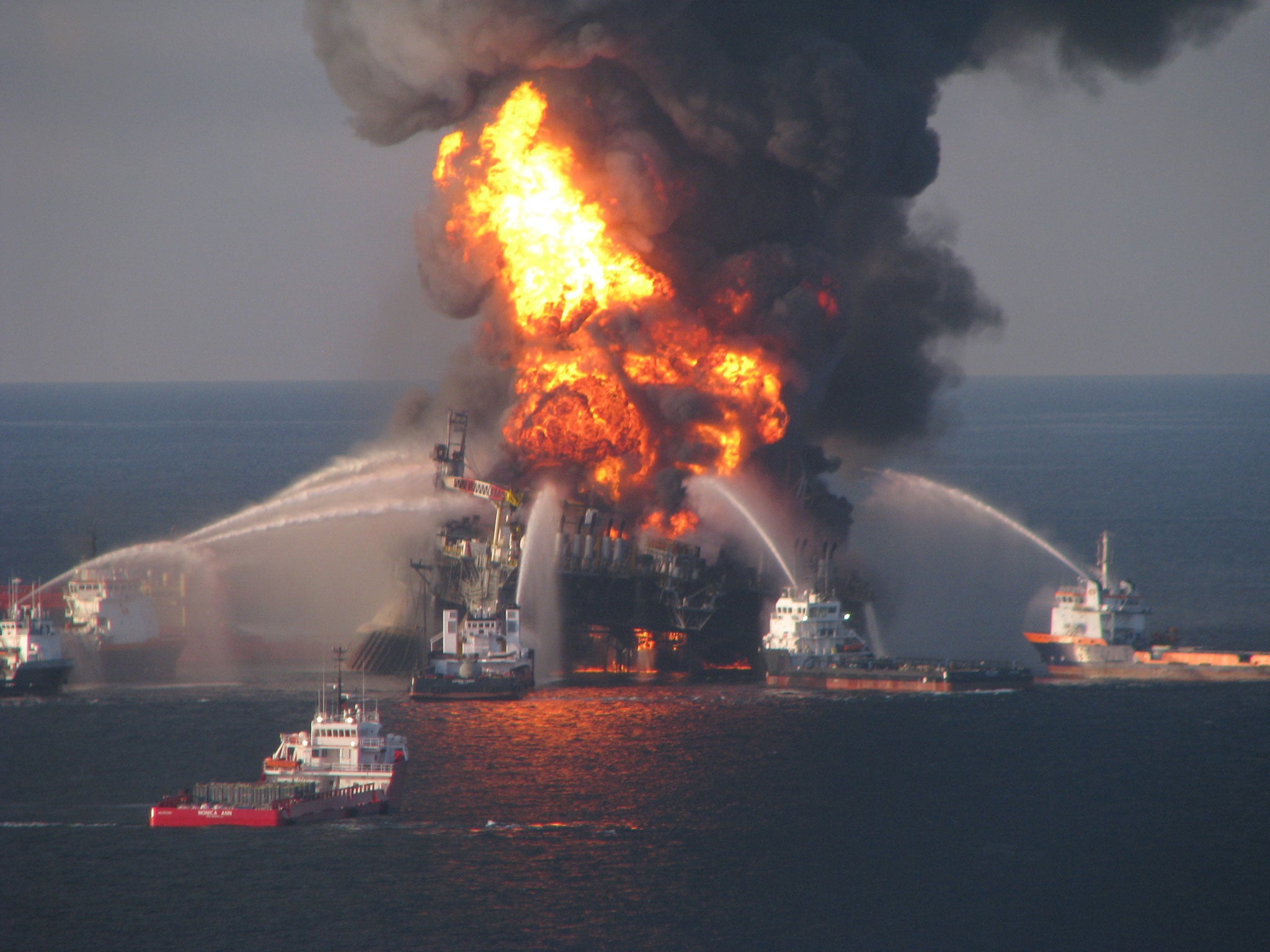BP ‘lied’ over true extent of its Gulf oil disaster
Second phase of trial opens with claims of negligence and lack of preparation

BP last night stood accused of telling “outright lies” and withholding crucial evidence about the amount of oil flowing from the damaged Macondo well in the Gulf of Mexico when it blew open in 2010.
As the second phase of the trial into the disaster opened in New Orleans, and with billions of dollars of potential fines in the balance, the oil giant’s lawyer, Mike Brock, said the company had done everything it could to cap the gushing well that was exposed following an explosion on the Deepwater Horizon rig that led to the deaths of 11 workers.
But Brian Barr, a lawyer for the plaintiffs, said BP had failed to prepare for such an accident. In his opening statement, Mr Barr also said the evidence “will show BP’s outright lies caused the oil to flow” for 87 days. A lawyer for Transocean, the owner of the rig, also said BP had repeatedly withheld evidence about the rate at which oil was flowing.
For BP, Mr Brock countered that BP had not lied, rather that it “made reasonable engineering decisions based on what was known along each step of the way… That’s not fraud. That’s not gross negligence”.
The claims and counter-claims came on the first day of the second phase of the oil spill trial being overseen by New Orleans Judge Carl Barbier, a maritime law expert who is hearing the case without a jury.
The first phase was concluded earlier this year and focused on whether BP and its partners in the project were “grossly negligent” in relation to the incident aboard the Deepwater Horizon rig that led to the spill. The second phase is focused on the size of the spill and BP’s action to cap the flow of crude oil from the Macondo well. The final portion of the trial will focus on potential damages.
The key issue in the second phase is how much oil leaked out of the damaged well during the days it took to cap the flow. The US government’s estimate puts the amount of oil at 4.2 million barrels. BP, however, believes the figure is lower, closer to 2.45 million barrels.
The difference is critical, as under the US Clean Water Act, polluters face liabilities of up to $1,100 or $4,300 per barrel, with the higher cap applying in cases where the polluter is found to be grossly negligent.
If BP is found negligent and its estimate is rejected by Judge Barbier, it could face a potential fine of $18bn under the Clean Water Act. If the judge finds the company negligent and uses its estimate for the amount of oil spilled, the figure drops to around $10.5bn. If BP is found not to have been grossly negligent and its estimate is used, the potential maximum fine falls even further to $2.7bn.
Another fine mess: the legal ripples
Why is BP back in court?
The oil giant is back in court in New Orleans for the second phase of the oil spill trial. The first phase concluded earlier this year and focused on the question of whether BP or its partners in the Gulf of Mexico project were grossly negligent. The focus in the current phase is on the amount of oil that spewed out of the well. The different estimates currently on the table could inflate or reduce BP’s potential fines by billions of dollars.
But hasn’t BP already paid out billions in connection with the spill?
Tens of billions, in fact. It also resolved cases with most of the private plaintiffs. But the US federal government claims and those by the affected states around the Gulf were not resolved. The trial currently under way will help determine the level of fines under the US Clean Water Act. There is more to come.
What kind of fine could BP end up facing?
The worst case scenario is a maximum fine of around $18bn. The prospect of such a fine would arise if BP is found grossly negligent and the judge rejects the oil giant’s estimate of the oil that flowed from the damaged well. But the maximum fine could be as low $2.7bn if the rulings are in BP’s favour.
Subscribe to Independent Premium to bookmark this article
Want to bookmark your favourite articles and stories to read or reference later? Start your Independent Premium subscription today.

Join our commenting forum
Join thought-provoking conversations, follow other Independent readers and see their replies